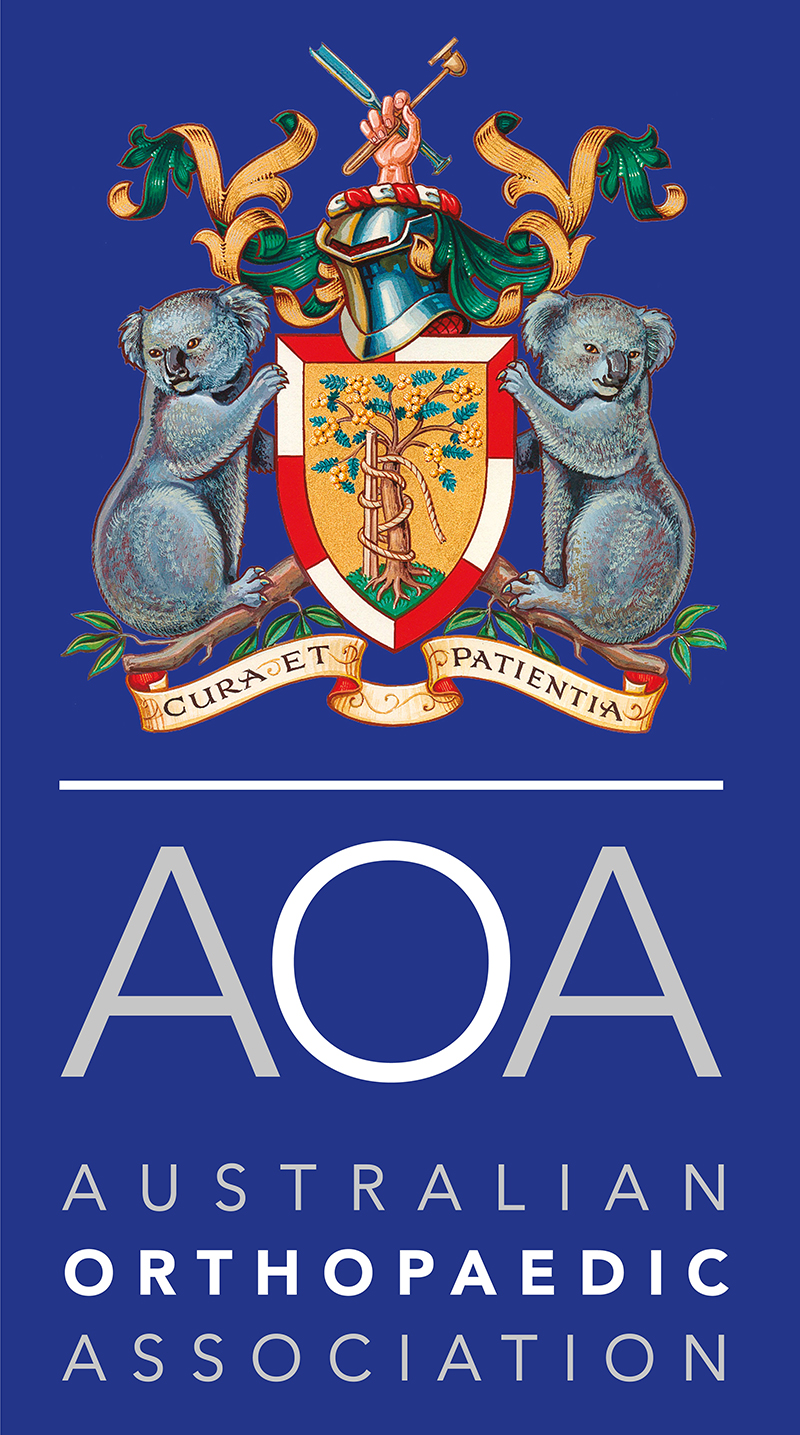Invited Nation 2019: Australian Orthopaedic Association (AOA)
EFORT Invited Nation Programme aims at raising awareness and recognition towards the contribution made to the management of musculo-skeletal diseases worldwide and to strengthen ties with colleagues around the globe. In this sense, we are delighted to announce that EFORT honours the Australian Orthopaedic Association (AOA). The AOA will be present themselves with a symposium on “Metal-On-Metal Hip Arthroplasty Outcomes: Remaining Problems” as well as with a booth in the exhibition area (1011).
The Australian Orthopaedic Association (AOA) is the peak professional organisation for orthopaedic surgery in Australia. AOA provides high-quality specialist education, training and continuing professional development for Australian orthopaedic surgeons; is committed to ensuring the highest possible standard of orthopaedic care; is the leading authority in the provision of orthopaedic information to the community; and actively supports scientific research and orthopaedic humanitarian initiatives in Australia and overseas.
AOA's purpose is to restore and advance the wonder of movement, and the organisation aims to be world-recognised for the advancement of orthopaedic surgery through education, professional standards, research and advocacy.
In 1936, two orthopaedic surgeons, Edmund Vance and Alexander Hamilton, conceived the idea of a specialty group for Australian members of their profession. A series of meetings with eight other surgeons followed over the next six months and at a meeting on 27 April 1937, 15 orthopaedic surgeons were declared Foundation Members of the Australian Orthopaedic Association.
The first Annual General Meeting was held on 21 March 1938. At the end of the meeting scientific papers were presented to the group and so the first Annual Scientific Meeting was held. This began the association's tradition of holding the ASM at the same time as the AGM.
In 1946, steps were taken to establish regional committees and in 1964, discussion groups and specialist bodies began to form within the umbrella of the AOA. The specialty societies that branch from AOA now include the: Arthroplasty Society of Australia, Australian Orthopaedic Foot and Ankle Society, Australian Knee Society, Australian Hand Surgery Society, Australian Orthopaedic Trauma Society, Medico-legal Society, Australian Paediatric Orthopaedic Society, Australian and New Zealand Orthopaedic Research Society, Australian Sarcoma Group, Shoulder and Elbow Society of Australia, and Spine Society of Australia.
AOA has over 1700 members, consisting of most orthopaedic consultants and trainees in Australian hospitals and spanning all orthopaedic subspecialties. AOA's Strategic Plan 2019–2021 reinforces AOA's core strategies of education and training, introduces a new focus on leadership and continues with renewed energy on implementation of the Ethical Framework, including professional standards, while highlighting the importance of research and advocacy.
In March 2014, AOA launched AOA 21 – an ambitious education and training initiative. AOA 21 aims to improve quality and patient care through the delivery of a world-recognised orthopaedic surgical education and training program. The launch of AOA 21 follows an in-depth review of AOA’s Surgical Education and Training program, and draws on extensive input from AOA members regarding their education and training experiences, ideas and needs. AOA 21 is now world recognised and AOA's experiences in developing the AOA 21 Program are sought internationally.
The Australian Orthopaedic Association National Joint Replacement Registry (AOANJRR) is an initiative of AOA and was established in 1999. The purpose of the AOANJRR is to improve and maintain the quality of care for individuals receiving joint replacement surgery. Information on hip, knee, shoulder, elbow, wrist, ankle and spinal disc replacement is collected from all hospitals in Australia undertaking joint replacement surgery. The AOANJRR analyses data to provide insight into the risk of mortality, revision and the approaches that can be taken to improve the outcome of joint replacement in group of patients.
Research is a key pillar of AOA and will pave the way for evidence-based clinical practice. Harnessing the drive for discovery and facilitating collaborations that will achieve this is a major goal of AOA. The AOA Research Fund was established in 1970. The Foundation continues to successfully raise, manage and distribute funds to support research into musculoskeletal disorders. Over the last 12 years the Research Foundation has provided approximately $1.5 million to support over 50 research projects.
All AOA members practice orthopaedics under the AOA Ethical Framework, which contains AOA's seven values: integrity, respect, quality, empathy, teamwork, service and stewardship. The Framework behoves all members to champion good behaviour and become empowered to question poor behaviour.
AOA presents a number of awards and medals for outstanding contributions to various areas of orthopaedic endeavour each year. The highest order of the Association is the L O Betts Memorial Medal, which is awarded for outstanding contribution to the science and practice of orthopaedics or to AOA.

